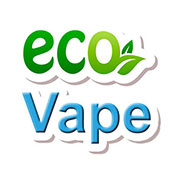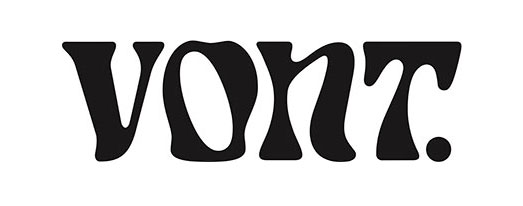The UK Government’s recent announcement of an 8-week consultation period, aimed at gathering input from teenagers, parents, teachers, medical professionals, academic experts, and various stakeholders, have been met with wholehearted support from myself and fellow vape industry professionals. I strongly encourage all to participate in this consultation as the outcome of this may well affect the lives of ten of thousands of people for years to come.
https://consultations.dhsc.gov.uk/65201ed1f3410a69990d3081
Who are the Vape Industry?
Many professionals in the vape industry, including myself, have entered this realm due to first-hand experiences with the transformative positive impact vaping has had on former smokers. We have also witnessed the devastating consequences of smoking-related illnesses and deaths. However, before delving further, let’s clarify what I mean by the “vape industry.” When I mention the “vape industry,” I am referring to the “regulated vape industry.” This expressly includes the individuals and organisations that invest significant resources in developing products designed to help adult smokers quit while ensuring the utmost safety. These are the same entities that engage companies like Arcus Compliance Ltd to meticulously review every product, ensuring compliance with UK regulations. This rigorous process encompasses everything from product packaging and labelling to an analysis of chemical ingredients, ensuring the absence of harmful substances or health risks. Detailed toxicological assessments are conducted, and all relevant information is compiled into a technical file for review by the Medicines and Healthcare Products Regulatory Agency (MHRA) before the product is added to the list of approved vape products (just one step in the compliance process).
Not my Industry
It’s important to emphasise that the vape industry I refer to is not the shady, fly-by-night operators who sell illegal, untested, oversized, high-nicotine products in the UK. Many of these illegal products are deliberately designed to attract and entice children with cartoon characters and multiple LED lights, prioritising profit over consumer safety. These illicit products pose the greatest risk to both children and adults, as they have not undergone any form of review. Recent analytical testing of some of these products has revealed alarming health risks, including the presence of heavy metals, harmful ingredients, and dangerous nicotine levels.
Vaping similarities with Smoking
The vape industry has made substantial positive contributions to the lives of millions of former smokers, primarily due to vaping’s relatively high safety profile and its similarity to the act of smoking. While vaping shares hand-to-mouth actions and social experiences with smoking that is where the similarities end, vaping does not cause the 220 daily deaths attributed to smoking in the UK. Vaping is not responsible for the immense suffering endured by families and friends of former smokers affected by smoking-related illnesses or the economic burden placed on our society. Vaping remains a 95% or greater safer alternative.
Youth vaping
Youth vaping is undeniably a problem, and no one disputes that fact. Vaping products are not intended for children. I personally observed a child vaping in a school in 2015 during my former role (and life) as a School Business Manager. There is a nuanced discussion to be had regarding children’s access to vaping and nicotine replacement products. As a father of a 16-year-old who has recently left school, I can say that if I caught him smoking, I would be devastated, but if I caught him vaping, I would be upset, and disappointed. I am fully committed to ensuring that children do not have access to vaping products. Notably, the UK’s objective to reduce the number of 15-year-old children who regularly smoke from 8% to 3% or less has been achieved, likely due to more than just plain packaging etc…..
The illegal market of untested, oversized vape products is intrinsically linked to youth access and has served as a conduit for the illegal sale of vape products to children. These illegal products are widely available, both in physical stores and online, posing the single greatest threat to consumers on the high street, as noted by the Chartered Institute of Trading Standards (CTSI). I see these products as the primary threat to the regulated vape industry.
So, who is responsible for the youth vaping epidemic, and what can be done about it?
The question of responsibility is not as clear-cut as one might assume. The government, national media, and local authorities often point fingers at the vape industry, despite the industry’s calls for stricter fines and a national vape retailers licensing scheme over the past three years. The vape industry has also provided crucial intelligence on the distribution and sale of illegal vaping products.
Nicotine-containing vape products are age-restricted by law, but the problem lies in enforcing these regulations. The College of Policing emphasises the need to increase the likelihood of being caught, reduce opportunities for crime, and win hearts and minds to combat criminal activities. Unfortunately, achieving these pillars for tackling illegal vaping activity is currently elusive. The likelihood of being caught and penalised is almost non-existent, opportunities for illegal activity are plentiful, and efforts to engage and educate retailers are severely lacking. A CTSI intelligence led test purchasing found that around 1 in 3 shops sell vapes to those knowingly under the age of sale.
The Problem of Enforcement
Data obtained through Freedom of Information (FOI) requests from Arcus Compliance sheds light on the activities of Trading Standards teams across the UK in addressing youth access and illegal products. In 11 major provincial UK cities with a combined population of over 5.5 million people, only 21 successful prosecutions have been made against retailers for underage or illicit sales between 2021 and early 2023. Moreover, the highest total fine across these cities during this period was a mere £2,188, an amount lower than the current maximum fine for a single offender at £2,500 and significantly less than the £10,000 on-the-spot fines advocated by much of the sector, led by the UK Vaping Industry Association.
Regrettably, regional Trading Standards officers have seen their funding and staffing levels reduced, some by over half, in the past 12 years, equating to an estimated £200 million. This has resulted in an aging workforce and difficulties in recruiting younger staff. Ironically, the lead Trading Standards officer for Operation Joseph, the £3 million operation aimed at combating illegal vaping and youth access, has been brought out of retirement to take on the role.
With over 400 regional trading standards authority areas, the one-time £30 million funding recently announced by the Prime Minister (awaiting further details) amounts to approximately £75,000 per region, assuming these funds are dedicated to each authority. However, this money cannot be used for recruitment , and given the size of the illegal vape market and youth access issues, the allocated sum is clearly insufficient.
Cause and Effect
It is evident that IF the outcome of this consultation results in a complete ban on disposable vape products, the real question is who will enforce this ban and how? According to the Office for Health Improvement and Disparities, e-cigarettes or vapes are the most common aid for people attempting to quit smoking. Single-use (disposable) vapes offer convenience and affordability, encouraging smokers who might not otherwise try vaping to make the switch. Data published by Action on Smoking and Health UK (ASH) reveals that 31% of the nation’s 4.7 million vapers rely on single-use products as their primary device, totaling 1.5 million vapers. Imagine the potential harm caused by a return to smoking if just half of these vapers were to switch back.
Environment
The environmental argument of single use disposable vape products carries some weight, I accept that the vape industry has been slow to react however today I have been judging the entries for the UKVIA Forum 2023 sustainable vaping awards and I can assure you that the innovation and commitment to change by all submissions is outstanding. Vape companies up and down the country are installing recycling bins, engaging with recycling companies and rapidly recognising their collective responsibility. Local councils and other retailers should now do the same.
Call to Action
Should we sacrifice regulated disposable vape products because we are unable to effectively enforce existing regulations, potentially undoing the positive progress made to date? Regardless of your stance, I implore you to conduct research and carefully consider the impact of smoking compared to the benefits of vaping. I watched in sorrow as one of my closest friends succumbed to smoking-related cancer. I firmly believe that he would still be with us today had vaping been as prevalent as it is now. Many of us in the vape industry share similar stories, which is why we must all view this consultation as a clarion call and submit our views, evidence, and opinions.









